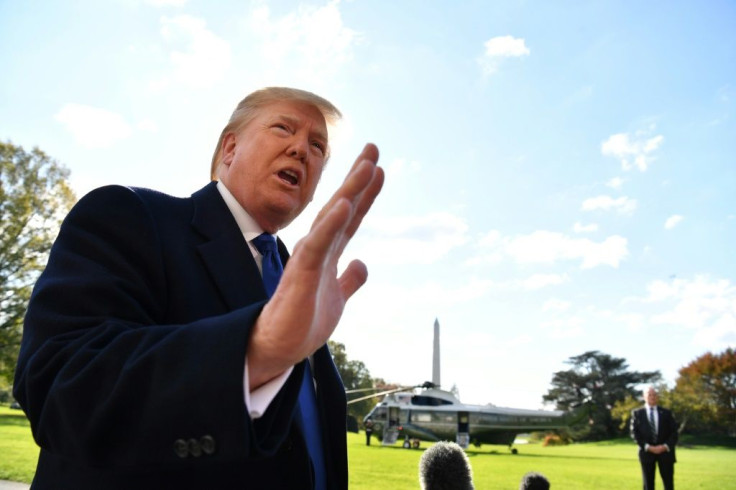China Trade War Update: Trump Says No Agreement On Lifting Tariffs

The U.S. has not agreed to roll back tariffs on China, President Trump said Friday, disputing a statement from China’s Commerce Ministry and saying he’s happy with the current situation.
Trump had planned to sign a phase 1 trade deal with Chinese President Xi Jinping next week at the now-canceled Asia-Pacific Economic Cooperation summit in Chine, but negotiations are continuing and no site for a signing ceremony has been chosen though Trump suggested it could be in Iowa “or farm country or some place like that.”
“They’d like to have a rollback,” Trump told reporters. “I haven’t agreed to anything. China would like to get somewhat of a rollback, not a complete rollback because they know I won’t do it. But we’re getting along very well with China. They want to make a deal. Frankly, they want to make a deal a lot more than I do. I’m very happy right now. We’re taking in billions of dollars. I’m very happy. China would like to make a deal much more than I would.”
The Chinese Commerce Ministry said Thursday an agreement had been reached on rolling back tariffs as part of a phase 1 deal, but both senior U.S. trade adviser Peter Navaro and U.S. Trade Representative Robert Lighthizer disputed the assertion although economic adviser Larry Kudlow said if there’s a trade deal, “there are going to be tariff agreements and concessions.”
“If the phase-one deal is signed, China and the U.S. should remove the same proportion of tariffs simultaneously based on the content of the deal,” China Commerce Ministry spokesman Gao Feng told reporters Thursday, adding that talks in the past two weeks have been constructive.
"What is on the table is tariffs coming in December, Dec. 15," Peter Navarro told NPR radio. "We would be willing I think -- it's up to the president -- to postpone those tariffs."
He added: "But not roll back any existing tariffs. That's the fine distinction here."
A new round of tariffs is scheduled to kick in Dec. 15, affecting such items as smartphones and toys. At the end of a round of trade talks last month, the administration postponed a series of tariff increases but a 15% tariff on $110 billion in goods remains in place.
The trade war is having an impact on Chinese exports as well as U.S. manufacturing and investment.
© Copyright IBTimes 2025. All rights reserved.





















